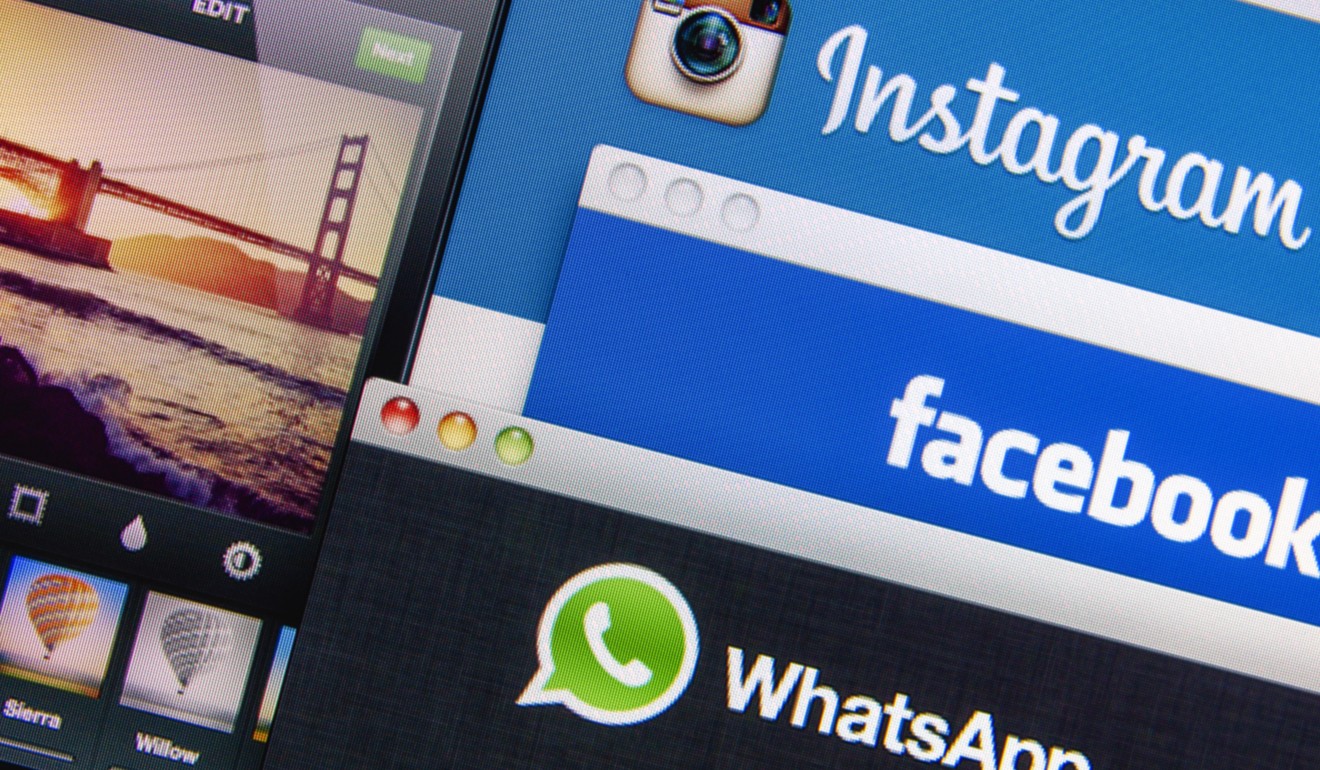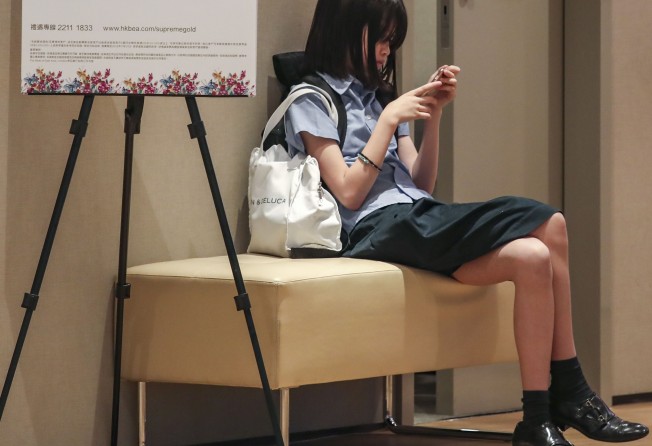
Nearly half of Hong Kong youngsters feel ‘despair’ if they don’t have something to post on Facebook, WhatsApp or Instagram, study suggests
Psychologists say the effects on mental health could be big

Nearly half of Hong Kong youngsters feel “despair” if they do not have anything to post on social media, while a tenth want to break into the ranks of popular online influencers, a first-of-its-kind survey has suggested.
The poll of 2,045 local adolescents, aged between eight and 19, also found that 43 per cent of the young people spent more than three hours a day on social media, with 9 per cent spending at least 10 hours a day.
The poll was conducted in May and June by the Hong Kong Paediatric Society and the Hong Kong Paediatric Foundation. It was said to be the first in the city studying the impact of young people’s use of social media on their mental health.
Some 93 per cent of respondents said they used social media. The top four social media or communication apps were WhatsApp (used by 82 per cent), YouTube (70 per cent), Instagram (61 per cent) and Facebook (48 per cent). On average, each signed up to five social media accounts.
Among the major reasons they gave for being online so much were “having formed a habit” (54 per cent) and “for fear of missing out” (34 per cent). Some 44 per cent claimed they would feel “despair” if they had nothing to post on social media, and 26 per cent said they would be disappointed if their posts did not receive as many “likes” or “positive responses” as they had expected.

Of the respondents, 29 per cent said they had broadcast live on social media before. Of those, 36 per cent claimed they did so with an aim to become a “KOL”, or key opinion leader, online. And among those, one quarter said they would not mind sharing “their private life or sexy photos online” if that would make them popular.
The survey did not ask respondents to state how sexy was “sexy”, but Dr Lilian Wong Hiu-lei, past president of the society and secretary general of the foundation, warned: “That young people are so keen to seek attention on the cyber world is because they do not feel they are cared about in the real world.
“Many of the young people want to be a KOL because they want to express themselves, not because they want to make money by doing live broadcast to promote products, like some KOLs online.”
Further analysis showed secondary school pupils tended to experience more negative psychological effects from staying longer on, or using more of, social media. Some 14 per cent of 1,545 respondents studying in secondary schools reported feeling “lonely and empty”, and 9 per cent also complained about feeling “stressed”. These compared with 10 per cent and 5 per cent respectively for those in primary schools.
Clinical psychologist Sumee Chan Kit-bing said the effects of social media on youngsters’ mental health was serious. She said: “We can’t take it too lightly. If we do not handle such negative emotions, they will grow and end up affecting the youngsters’ mental health.”
Dr Chan Chok-wan, former president of the International Paediatric Association, said it was impossible to ban young people from using social media, but urged parents to teach their children how to use it wisely. “Parents should encourage and assist their children to establish a balanced lifestyle and develop different hobbies and interests,” Chan said.
He urged the government to upgrade the Commission on Children from an advisory body to one with statutory power to implement a children’s health policy.
A mother, Lena Tsang, said she set rules for her son, who is in Primary Four, to avoid him getting obsessed with social media.
“I started doing so when he was small so, now he has grown up, he is used to not spending too much time on online social media or games,” Tsang said. She added that parents should set an example and not use social media themselves all the time.